Get Growing: Poet Tess Taylor reading from anthology of garden poems at Amherst College
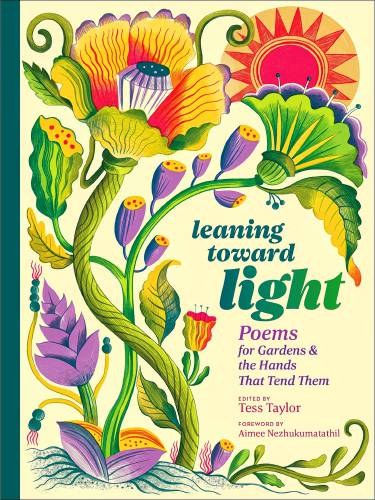
Poet Tess Taylor will be at Amherst College’s Book & Plow Farm on Sept. 19 at 7 p.m. for a poetry reading and a celebration of the harvest. CONTRIBUTED
| Published: 09-11-2023 6:34 PM |
All the gardeners I know have their favorite garden writers. Allen Lacey, Katharine S. White, Elsa Bakalar, Henry Mitchell … the list is long and endlessly fascinating. But I suspect that few of us take the time to seek out poetry about gardening. That’s a shame, because garden poetry, a venerable tradition, offers insight and inspiration to gardeners everywhere.
Fortunately, there’s a new anthology of contemporary garden poems, “Leaning Toward Light: Poems for Gardens & the Hands That Tend Them,” compiled by the acclaimed poet Tess Taylor, who has deep ties to the valley and will be doing a reading at Amherst College on Sept. 19. As we round the corner into fall and the winding down of the garden, this collection might well engage some of our quieter moments.
Taylor has been an ardent gardener from early childhood when she spent time in her parents’ garden plot in graduate student housing at the University of Wisconsin at Madison.
“In my memory it was quite a sizable place,” she said. “I remember being present with my parents but also being a small person lost among vines, pumpkins and tomatoes. It was a joyful place. You could build a dirt hill, put a squash seed in, and week by week watch the plant get bigger and bigger. It was magical.”
She grew up in El Cerrito, California, a few miles north of Berkeley. Her family had a small garden that she helped with. She said that in her teens she was having problems with disordered eating and that the garden was her salvation.
“Tending this patch of my life reminded me that the Earth is real and that these plants are products of tenderness and care,” she said.
During high school she worked at the Berkeley Farmers’ Market and became interested in the politics of food. “If you can get people to steward the Earth and produce food,” she said, “you can make a better world for everyone.”
When she arrived at Amherst College in 1995, she saw that most of the food being served in the cafeteria wasn’t produced locally. “I wondered whether we couldn’t change the food system.” She ended up living in the “Zoo,” a co-op house at Amherst where residents prepared their own food communally. She believes it’s important for colleges and other institutions to have gardens and farms, and is thrilled that Amherst has established its Book & Plow Farm that produces food for the campus. “It’s moving in the right direction,” she said.
Article continues after...
Yesterday's Most Read Articles
 Bridge of Flowers in Shelburne Falls to open on plant sale day, May 11
Bridge of Flowers in Shelburne Falls to open on plant sale day, May 11
 As I See It: Between Israel and Palestine: Which side should we be on, and why?
As I See It: Between Israel and Palestine: Which side should we be on, and why?
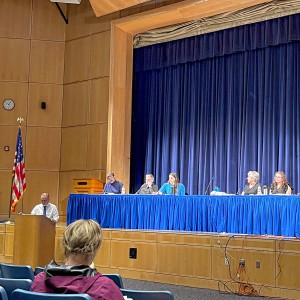 $12.14M school budget draws discussion at Montague Town Meeting
$12.14M school budget draws discussion at Montague Town Meeting
 Greenfield homicide victim to be memorialized in Pittsfield
Greenfield homicide victim to be memorialized in Pittsfield
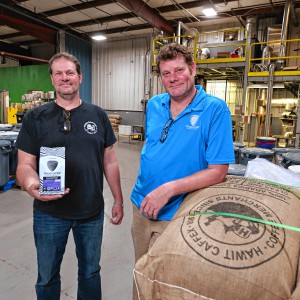 Fogbuster Coffee Works, formerly Pierce Brothers, celebrating 30 years in business
Fogbuster Coffee Works, formerly Pierce Brothers, celebrating 30 years in business
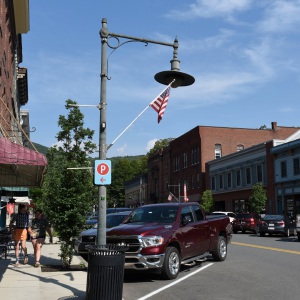 Streetlight decision comes to Shelburne Town Meeting
Streetlight decision comes to Shelburne Town Meeting
Having spent much of her life in urban settings, Taylor is a staunch advocate of city gardens and green spaces. She spent two summers during college teaching young people in Berkeley about food, gardening and green space.
“We planted and harvested carrots and tomatoes,” she said. “It was a joyful, meaningful time.”
That experience led her to consider working as a garden educator, but she realized she could not make a living doing that. She was also interested in writing poetry but knew it would likewise not support her.
After graduating from Amherst College in 2000, she moved to Brooklyn to pursue her writing career. She became involved in a community garden there. “We had 43 different kinds of pollinators there, while the rest of Brooklyn had about three.” But she found life in Brooklyn hard. “My gardening side and my poetry side didn’t get to hang out,” she said.
In 2010, she was awarded a one-year residency at the Amy Clampitt House, a retreat for poets in the Berkshires. Hoping to continue her garden work alongside her poetry, she asked if she might join a local community garden there. There weren’t any community gardens nearby, but she was given the opportunity to work at Farmgirl Farm in Sheffield. She wrote about that year in a book called “Work & Days,” which was listed as one of 2016’s 10 best books of poetry by The New York Times.
Taylor sees deep parallels between gardens and poetry.
“Gardens let you savor the beauty of a plant,” she said. “Poetry lets you savor the beauty and density of language. Like a garden, poetry is a dense ecosystem. In a garden, you’re folded in, intertwined with the space. Hopefully, we emerge from both changed. We have a minute or two inside and come out restored.”
After her time in the Berkshires, she moved back to El Cerrito into a house six blocks from where she grew up. She planted a vegetable garden in her front yard.
“Nobody was doing that back then,” she said. “I don’t know if I’m a trend setter. We have artichokes growing on the sidewalk median strip. There’s a pumpkin patch. It makes an interesting conversation piece. It reminds people that this space doesn’t have to be a lawn.”
She still lives in El Cerrito with her partner and their two children, ages 8 and 12.
Gardens are places full of surprises, Taylor added.
“There are always things you’re not expecting,” she said. “Gardening lets you participate in the great mysteries of life. A garden isn’t entirely within your control, but it’s not to be abandoned. Like making art, gardening is one of the meaningful gestures of our life.”
She is curious about what compels people to garden now, “when we’re facing a climate catastrophe and have grocery stores that can provide all the food we need.” She quoted Seamus Heaney, the Irish poet and Nobel Laureate, who wrote “no lyric has ever stopped a tank.” She believes we are drawn to gardening because it offers us “small acts of tending,” a way of engaging in a “fragile dance with the planet.”
Both poetry and gardens are “powerful spaces when we’re desperate for cooler, greener spaces for the body and the imagination.” Her recent poem, “Green Tomatoes in Fire Season” begins, “There is smoke in the air/when I go pick them./I go despite panic, also because/inside I’ll make chutney.”
For “Leaning Toward Light,” Taylor said she chose mainly poets “who are writing now and seem to have their hands in the soil, doing the physical activity.” But she also included several earlier poets like Virgil, John Keats and Walt Whitman, “to remind us that garden poems are an old poetic form.” The anthology is divided into six “seasons,” starting with Planting and Sprouting and ending with Wintering and Turning Again. Interleafed with the poems are essays and recipes and lovely color illustrations.
“Gardens make us all pollinators of life, weavers of the living web,” she wrote in an email. “This book, and the web it’s weaving, has brought me so much joy.”
Taylor will be at Amherst College’s Book & Plow Farm on Sept. 19, at 7 p.m. for a poetry reading and a celebration of the harvest.
“This anthology lends itself to the opportunity of reading in a garden,” Taylor said. “It’s a cross-pollination of writers and gardeners. It enlarges the space of celebration.”
Several poets with connections to the Pioneer Valley will join Taylor, including Kirun Kapur, Hannah Fries, Brian Simoneau and Anna Ross. The event is free.
For more information, go to amherst.edu/news/events/calendar.
Mickey Rathbun, an Amherst-based lawyer turned journalist, has written the “Get Growing” column since 2016.

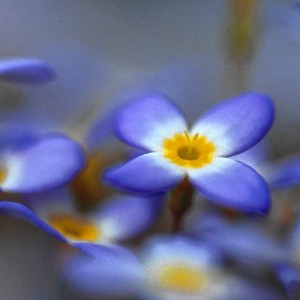 Speaking of Nature: Indulging in eye candy: Finally, after such a long wait, it’s beginning to look like spring is here
Speaking of Nature: Indulging in eye candy: Finally, after such a long wait, it’s beginning to look like spring is here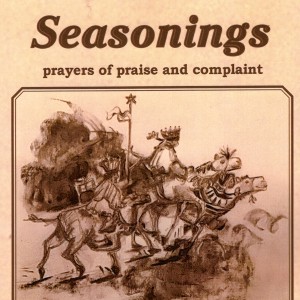 Celebrating ‘Seasonings’: New book by veteran preacher and poet, Allen ‘Mick’ Comstock
Celebrating ‘Seasonings’: New book by veteran preacher and poet, Allen ‘Mick’ Comstock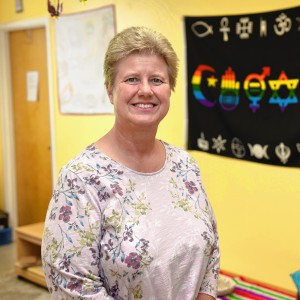 Faith Matters: How to still the muddy waters of overthinking: Clarity, peace and God can be found in the quiet spaces
Faith Matters: How to still the muddy waters of overthinking: Clarity, peace and God can be found in the quiet spaces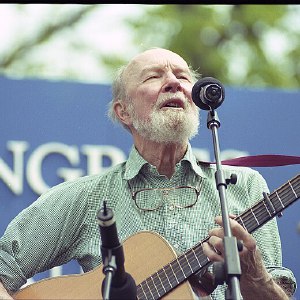 A time for every purpose under heaven: Free sing-a-long Pete Seeger Fest returns to Ashfield, April 6
A time for every purpose under heaven: Free sing-a-long Pete Seeger Fest returns to Ashfield, April 6
